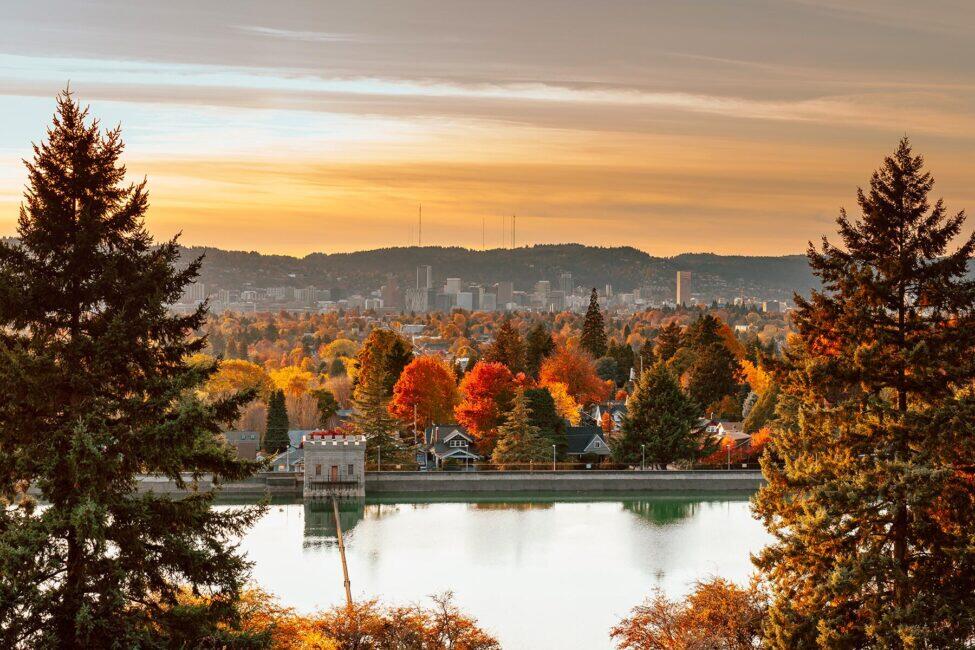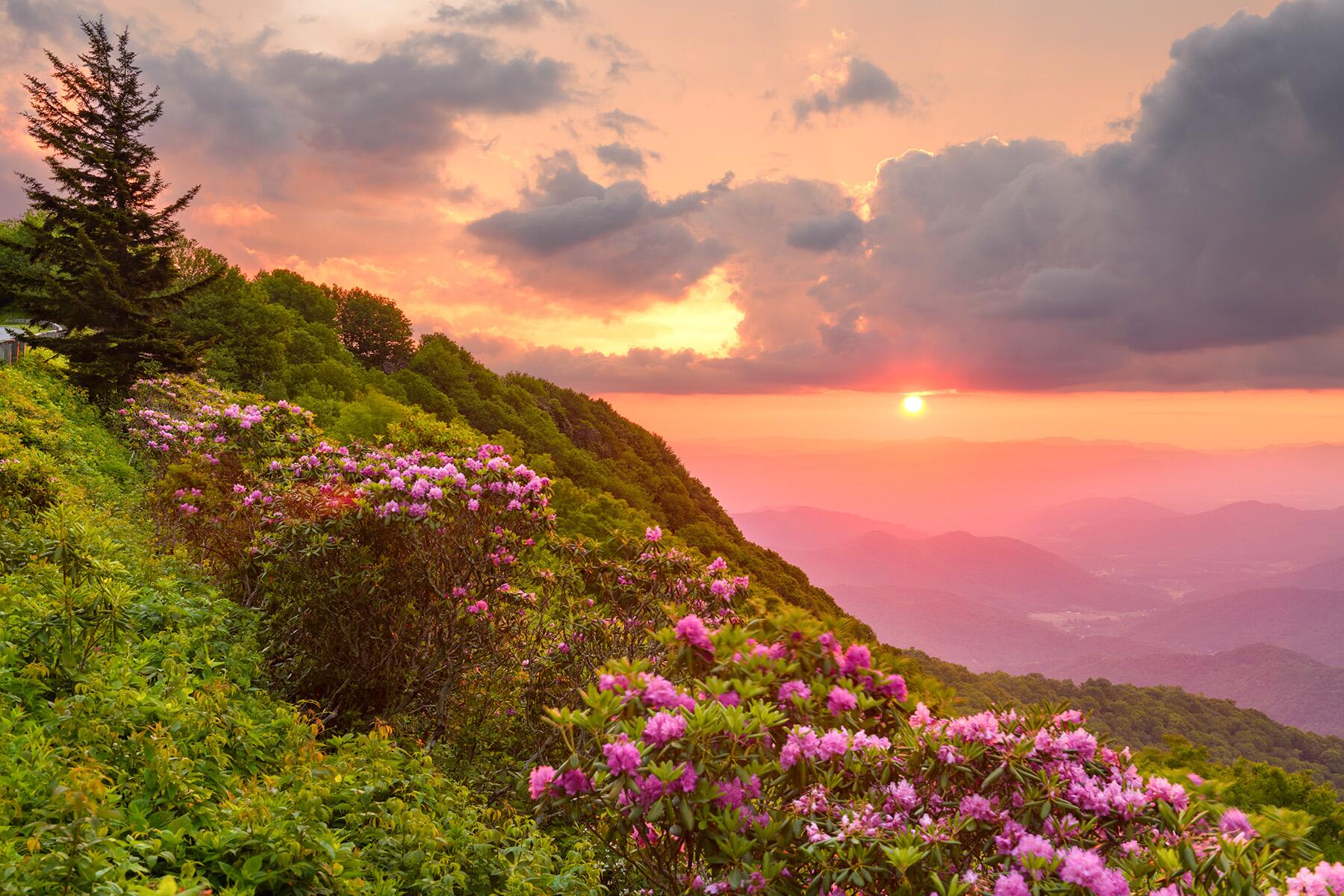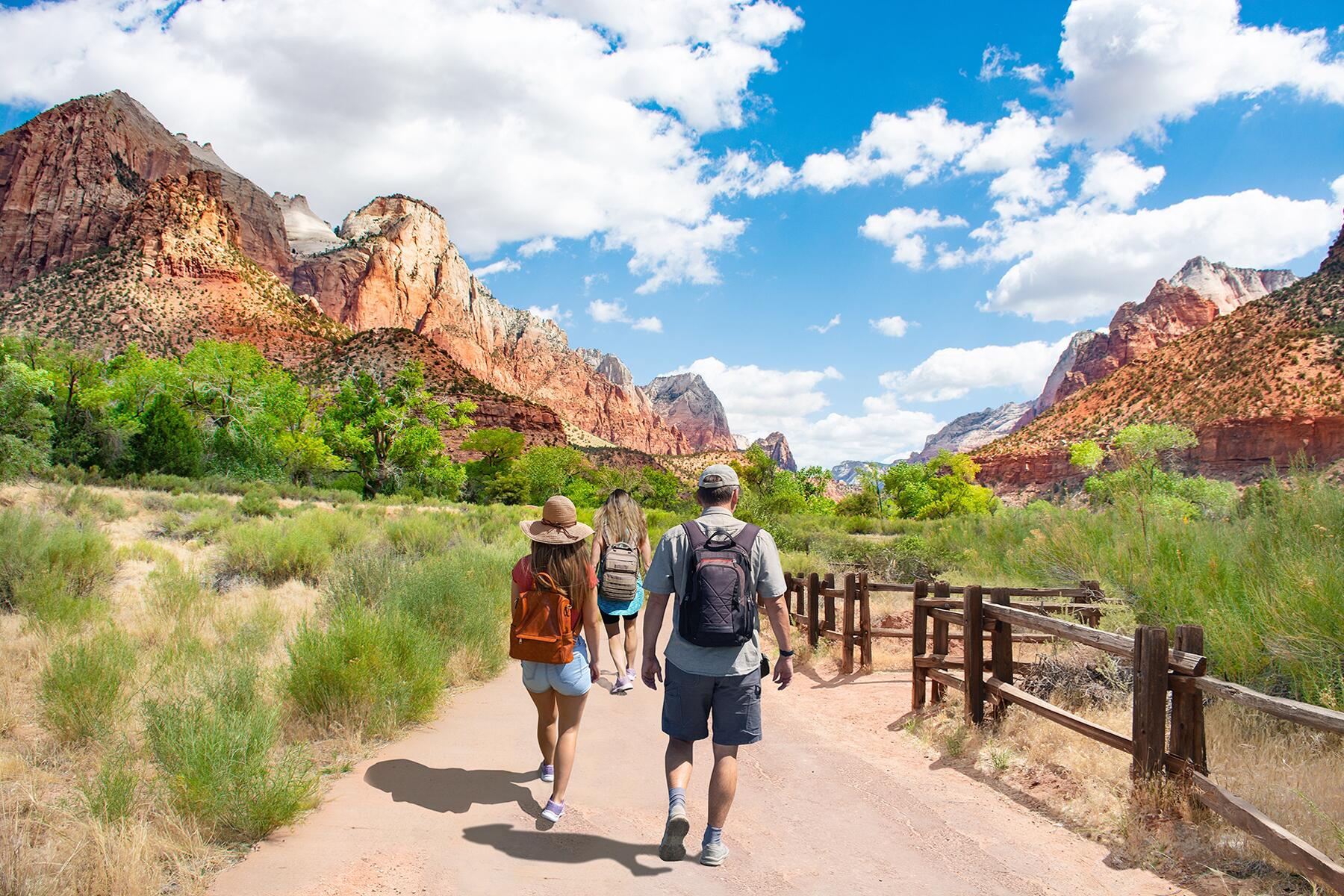Sound is a part of urban life and travel, but quiet can be too.
Picnicking atop Mount Tabor’s summit on a dry, sunny early spring day in Portland, Oregon, you can hear the sound of squeaky bike gears in need of greasing pass by. They register just below the tinny strums of acoustic banjo chords and warm fiddle notes. Your ear can catch the gentle rustle of trees, the squirrels spiraling up a grand fir in excited chase, and bird calls.
Mount Tabor has long been a favorite Portland spot for a quick hit of daily decompression within city limits. And now, it’s certifiable. Quiet Parks International (QPI), a non-profit that aims to “save quiet for the benefit of all life,” designated Mount Tabor an Urban Quiet Park this past May, making it America’s first and the world’s ninth. In addition to Urban Quiet Parks, QPI also designates Wilderness Quiet Parks and Quiet Trails.
What Is ‘Quiet Park’ Status?
A park doesn’t have to be silent or devoid of human activity to earn Quiet Park status. Mount Tabor has picnic sites, tennis and basketball courts, horseshoe pits, and even its own dang amphitheater. The summit of Mount Tabor is a popular gathering place for cyclists and long boarders who enjoy meeting-up and bombing down the 636-foot tall dormant volcano–a time-honored Portland pastime. Not to mention the raucous annual PDX Adult Soap Box Derby.
Recommended Fodor’s Video
So how in the heck does a place with such robust activity become a certified quiet park? QPI doesn’t fixate on total silence. They focus on volume levels, minimized unnatural sounds, and the audible presence of natural sounds.

“It’s about the soundscape as a whole and what occupies the aural space of the park at any one time,” explains Jacob Shmidt, the QPI volunteer technician who measured Mount Tabor’s soundscape. “Looking for moments without human-made machine noise and typically decibel levels under 45 decibels.”
For comparison, the library, bird calls, and the lowest possible limit of urban ambient sound all come in between 40 and 45 decibels. Quiet rural areas are around 30 decibels, rustling leaves around 20, and the human breath, 10.
Too Much Noise Can Ruin the Vibe and Decimate Your Quality of Life
So, why does quiet matter? Prolonged, routine exposure to noise can impact your long-term health. There’s definitely still room for joyful noise in this world (Rio’s Carnival, a USA motorcycle show, Thailand’s Songkran festival—whatever noisy event floats your boat), but we all need doses of quiet to maintain health. Decades of research show a strong connection between extended exposure to noise pollution and adverse health outcomes, such as sleep disturbance, anxiety, depression, and spiked stress hormones. Over time, these ill effects pile up and contribute to even larger health threats, such as hypertension.
In a 2022 U.N. Report, noise pollution was a top environmental threat contributing to sleep loss, cardiovascular disease, loss of quality life, and healthy life years. We’re also still very much in a world where not everyone has easy access to a quiet place. A 2017 study in Environmental Health Perspectives Journal is just one example of the research-founded relationship between socioeconomic status, race/ethnicity, and proximity to noise pollution.
“[I]f more quiet places are preserved throughout the world, more people will be able to access them and experience those benefits of quiet,” says Emily Hessler, the U.S. regional representative for QPI and a sound technician. Just as too much noise can harm us, doses of quiet can help restore our mental and physical health.
As increasing noise impacts human health and ecosystems, awareness of the issue and attempts to address it are also increasing. Dr. Kenya Williams, a QPI advisor of acoustic ecology and sensory urbanism, is doing his part to widen our perceptions.
“When you think of the built environment, the first sense taken into account is the visual … [but] I’ve sat in many beautiful places in the world that sound horrible,” says Dr. Williams. “It’s like we see this awesome photo of vibrancy—you know, people sitting outside a café. It looks cool. but the traffic is like 20 feet away. And that’s not pleasant.”
Cue the abundance of social media posts featuring beautiful places with calm music overlaid. Ambient noise undeniably impacts how we experience a place, whether we’re consciously aware of it or not.
Where and How To Find Some Quiet in and Around Portland
Portland has 200 plus parks, including one of the U.S.’s largest urban forest reserves (5,000 acres, eight miles long), and in quaint, adorable contrast—the World’s Smallest Park, featuring just one tree. You won’t find quiet at tiny Mills End Park (it’s literally in the middle of the street), but if you head to massive Forest Park, some solace and quiet can be found.
INSIDER TIPGo early in the day, get off the main trails (Wildwood, Leif Erikson), and best yet–go on a rainy day.
Tryon Creek State Natural Area also offers similar opportunities under similar conditions. The Portland Japanese Gardens is also a popular attraction for residents and visitors, and remains fairly quiet by design. The lesser-known Lan Su Chinese Garden offers its own serene walks and respite from downtown’s hullabaloo. Then there is Powell’s Books. Now, the fact it’s called “The City of Books” and is the world’s largest independent book store should tip you off that there is no library silence here, but head to the Rare Books section for some serious peace.
Finding Peace Outside Portland
Outside of Portland, Schmidt says, “[M]uch of the Oregon Coast wilderness areas are extremely quiet. They have [a] low [amount of] plane flyovers.”
If you’re not the adventurous, possibly bushwhacking, qualified-to-stay-safe-in-the wilderness type, consider visiting a stunning Oregon coastal town in the off-season. Cannon Beach, wildly popular come summertime, is relatively quiet come winter but no less gorgeous. Head just 15 minutes south and you can stay in the even quieter, residential Arch Cape so long as you are willing to shop at a grocery shop, then cook your own meals or drive into town to eat (no bushwhacking required).
A singly mossy log in the Hoh Valley of Olympic National Park used to be called the quietest spot in the USA. QPI co-founder, acoustic ecologist Gordon Hempton, actually fought to preserve that “square inch of silence” before founding QPI. Due to military jets and commercial aircraft, that square inch of silence is no longer guaranteed. But, on a lucky day, Hempton says you won’t hear the jets, which (though rarely visible because they fly high) are as loud as they are thunderous. Other than the jets, Olympic National Park remains a site of stunning silence. By the end of 2023–Seattle, Washington, is slated to have its own QPI Urban Quiet Park.

The United States and Globally
Consider Hempton’s list of 12 Silent Places Left in the USA. For international options, go to the QPI website’s global map of Quiet Sites. You can even join QPI Quiet Experiences.
INSIDER TIPSeeking quiet in a city? Consider timing. Just like travelers seeking to snap a photo during reduced crows, travelers wanting to experience quiet and stillness should consider earlier and later hours
Quiet Spaces Etiquette
When headed to these quiet spaces, try to be quiet yourself. In a wilderness area? Consider an umbrella over the very-noisy-once-you-stop–and-think-about-it raincoat. Plus, umbrellas “make a nice hiking staff, produce their own shade, and because of their parabolic shape, can reflect nature’s sounds into your ears,” Hempton says.
In a public park? Create “your own slice of quiet” and be a steward of the quiet you seek, says Dr. Williams. Silence your cell phone, and leave Bluetooth speakers at home. Dr. Williams also recommends sound walk tours to experience quiet or a city from a sonic perspective. If you can’t access quiet easily? Hessler suggests that “listening to nature sounds can be a really great substitute to physically being in those places.” Heck, you can even listen to Washington State’s Olympic National Park on Earth.FM (and 6,000 other nature recordings) for free.
Always consider your timing when visiting somewhere. Just like travelers seeking to snap a photo at a time with reduced crows, travelers wanting to experience quiet and stillness in a place might want to consider earlier and later hours for visiting.




Wait - rioters left Portland worse than Dresden after allied bombing and you are concerned about decibel levels?